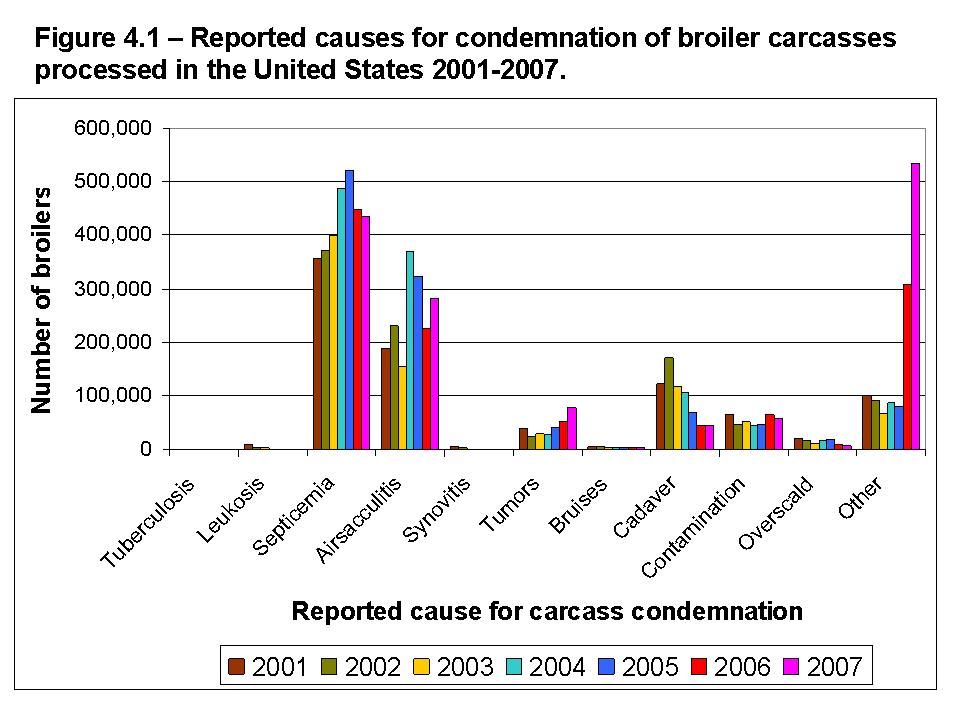Chapter 4 - Contamination
Chapter 4 - Contamination
Carcasses that are contaminated to the extent that valid inspection cannot be made are condemned. An example would be a carcass contaminated with bile or feces to the extent that the inspector cannot determine whether the carcass is wholesome. Carcasses that are mishandled and fall into open sewers or evisceration troughs are also condemned under the contamination category.
A feed withdrawal program plays an important role in reducing the level of contamination in broiler processing plants. Removal of feed and water from market-aged broilers before catch and live haul is a standard management practice that has been used by the poultry industry for more than 40 years. During this feed withdrawal time, broilers will evacuate their digestive tracts, and carcass contamination in the plant will be reduced.
Feed withdrawal refers to the total length of time a flock is without feed before processing. This includes the time the broilers are in the house without feed, as well as the time they are in transit and in the live hold area at the plant. Length of feed withdrawal is important because it affects the following:
- Carcass contamination and yield (reprocessing and live weight losses)
- Plant line efficiency (removal of contaminated carcasses)
- Grower payments (live weight loss)
- Product safety and product quality (pathogenic and spoilage bacteria)
Live production management practices can affect the results of feed withdrawal by altering the broilers' eating patterns or by changing the rate at which feed passes through the broilers' digestive tract. In order for a feed withdrawal program to work as designed, broilers must have normal feed consumption pattern and normal feed passage during the week before feed withdrawal.
Changes in lighting or temperature regimes (hot or cold), a disruption immediately after feed is removed, and the stressors of catching and holding can slow feed passage in broilers. When the rate of feed passage is slowed, it may not be possible to correct this problem simply by holding the broilers for a longer period of time before processing. It is best to minimize exposure to any condition that slows the passage of feed or causes the broilers to gorge immediately prior to feed withdrawal.

